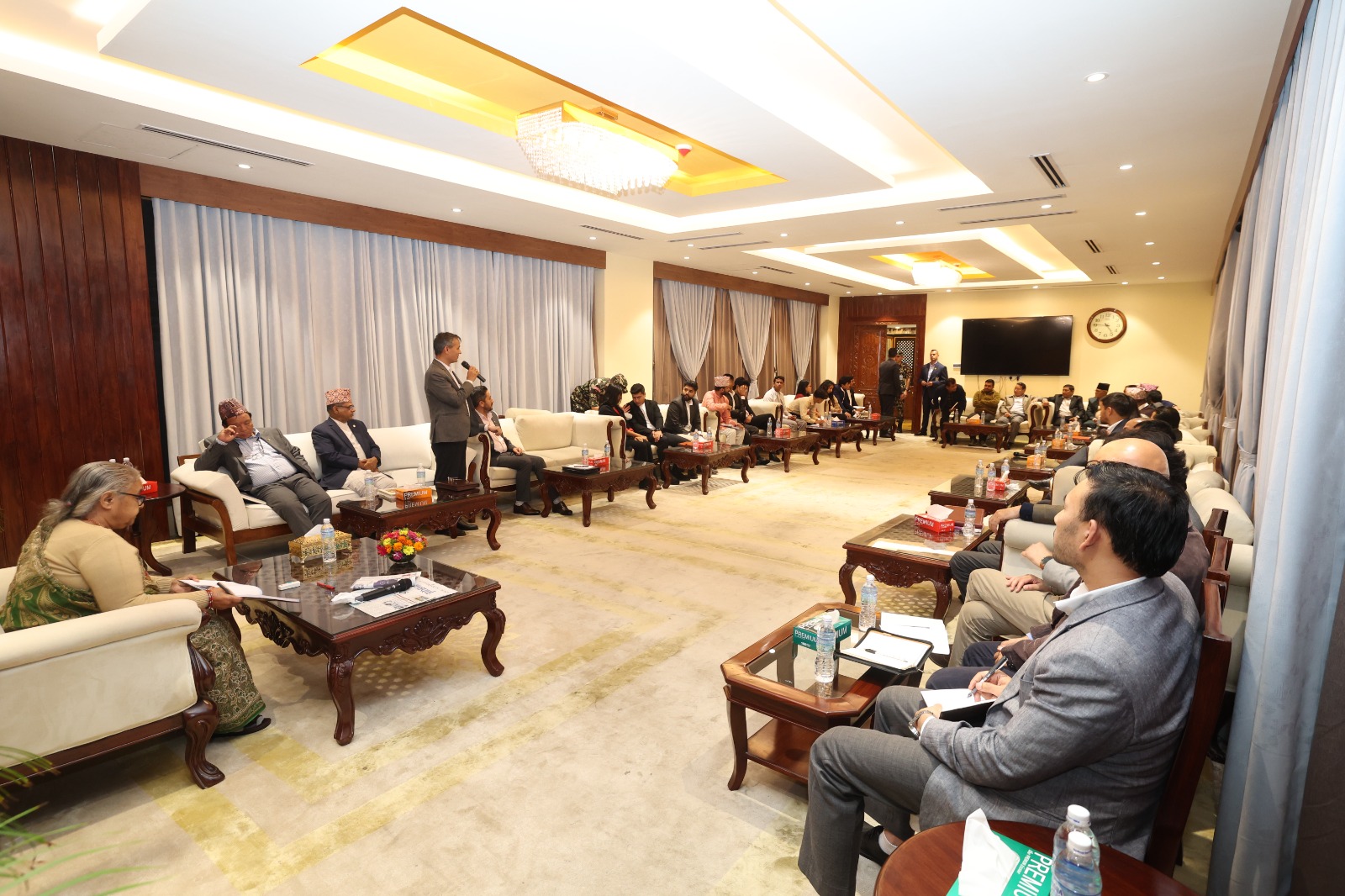

KATHMANDU: With just over four months remaining before the parliamentary elections, the government has intensified efforts to create an electoral environment.
Following an earlier initiative by President Ram Chandra Paudel, Wednesday saw a new step toward normalization as the government facilitated dialogue between political parties and Gen Z representatives, effectively serving as an icebreaker.
The Gen Z uprising of September 8–9 had targeted the then-ruling establishment and traditional parties.
After then-Prime Minister KP Sharma Oli resigned, the movement reached a symbolic milestone on September 12, leading to the appointment of Sushila Karki as prime minister.
President Paudel described her government as one formed with “great prudence” to safeguard the constitution, carrying a mandate to hold elections on March 5 next year.
To ensure a conducive electoral environment, dialogue between the “stakeholders” (Gen Z) and the “subjects” (political parties) of the uprising was considered essential — a process that began on Wednesday.
Following the four-hour-long meeting, government officials expressed optimism, describing it as a significant step toward electoral readiness.
Government spokesperson and Minister for Communication Jagadish Kharel said the talks ended years of stalled communication between Gen Z and political parties.
“The discussion was cordial. Everyone engaged positively. The country is moving toward normalization, and the election mood has been set,” he said.
Highlights of the meeting
Prime Minister Sushila Karki opened the session by stressing the need for continuous dialogue among all forces.
“This country belongs to all of us. We must build it ourselves. One conversation is not enough — it must continue,” she said, emphasizing that repeated discussions between the government, political parties, and Gen Z were key to giving lasting meaning to the movement.
During the talks, the Rastriya Prajatantra Party (RPP) proposed a directly elected executive prime minister and the reinstatement of the monarchy as a “guardian institution.”
RPP leader Rajendra Gurung said dialogue between the King, political parties, and Gen Z was essential to maintain national balance and prevent future uprisings.
The CPN (UML) demanded the reinstatement of Parliament, noting that while it was prepared to face elections, the environment was not yet conducive.
Nepali Congress General Secretary Gagan Kumar Thapa raised concerns over seasonal and security challenges for holding the election in March but reaffirmed the party’s commitment to cooperate with the government.
Gen Z representatives stressed that elections remained their top priority, but good governance and anti-corruption action must also advance alongside the electoral process.
After the meeting, Gen Z delegate Khem Raj Saud said the tripartite dialogue discussed how to hold the elections on schedule.
“Most parties supported the election, except UML, which insisted on restoring Parliament. We made it clear that without elections, the Gen Z movement cannot be institutionalized,” he said.
Another Gen Z delegate, Sagar Dhakal, described the first round of talks as positive, emphasizing that political parties cannot be bypassed.
“There is no alternative to elections. We also discussed how Nepalis abroad will be able to vote,” he said.
Minister Kharel added that the discussions included governance and anti-corruption measures.
“All parties accepted elections and clearly expressed their willingness to cooperate,” he said.